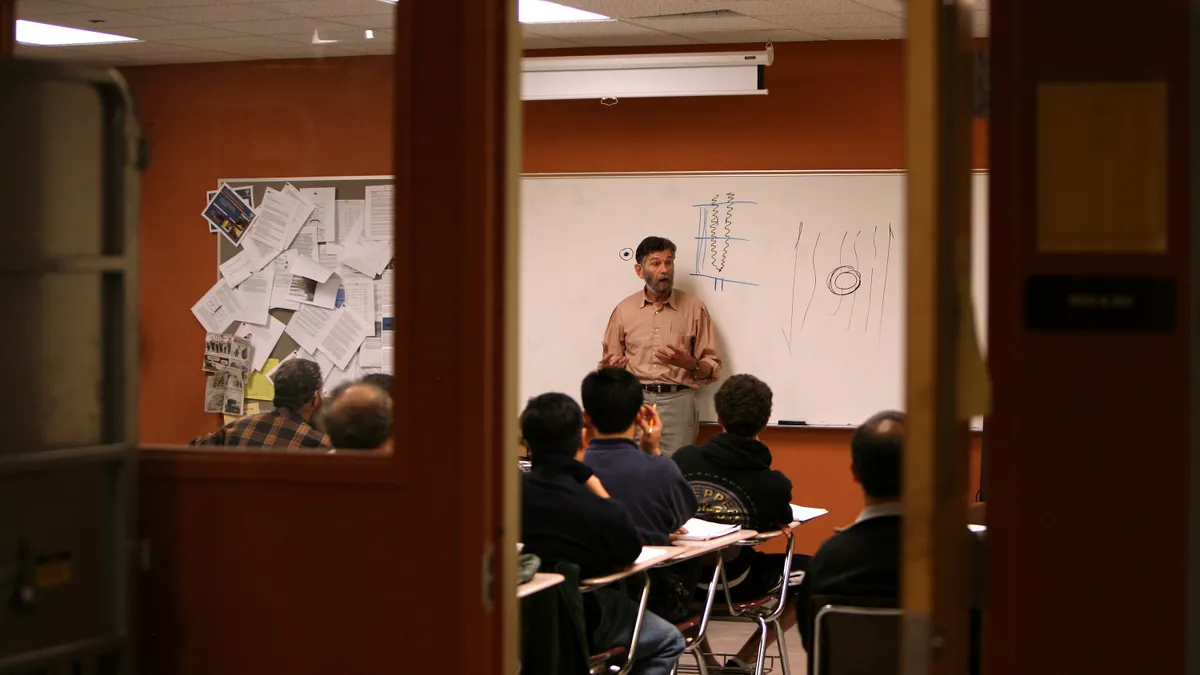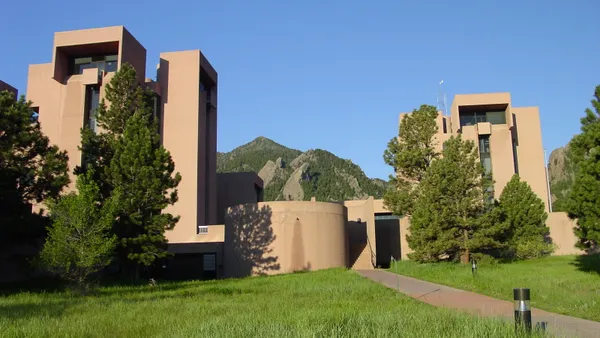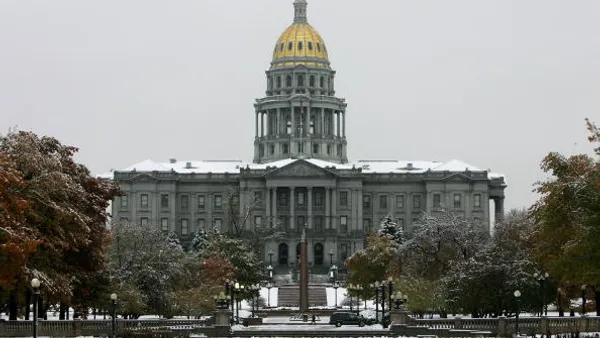Dive Brief:
- The U.S. Department of Energy Building Technologies Office for Resilient and Efficient Codes Implementation has awarded the American Society of Heating, Refrigerating and Air-Conditioning Engineers a $2.85 million grant.
- RECI is a product of the Infrastructure and Jobs Act, with the award funding the “Energy Code Official - Training & Education Collaborative”, or ECO-TEC, a project led by ASHRAE and the International Code Council, according to a press release.
- The initiative is part of the larger RECI program, which is set to invest $225 million over five years to facilitate a cost-effective implementation of updates to building energy codes.
Dive Insight:
ASHRAE says ECO-TEC will strengthen energy code enforcement activities, tapping into new communication channels to connect with disadvantaged and rural communities. Training stipends aimed at providing career opportunities and expanding the workforce will form a key component of the project.
ECO-TEC includes support from the National Association of State Energy Officials, or NASEO, and will increase energy code enforcement activities through a multi-module training targeting building energy code officials.
The project is expected to save Oregon, Michigan, New Jersey and West Virginia approximately $18.5 million. ASHRAE says these savings reflect the difference between standard and “improved” compliance, and assumes that partner states adopt the latest model energy codes.
"The ECO-TEC will significantly contribute to advancing energy efficiency and resilience in our buildings, ultimately leading to a more sustainable future,” Jeff Littleton, executive vice president of ASHRAE and principal investigator of the ECO-TEC, said in the release. “By empowering code officials and professionals with the necessary knowledge and skills, we can effectively transform the built environment and promote sustainable practices nationwide.”
ASHRAE also pointed to potential savings for 48 states, excluding California and Washington, with “improved” to “aggressive compliance” using their current codes range. States could save between $12 to $41 million in the first year and between $149 to $335 million by year five.
ASHRAE noted that “improved” to “aggressive compliance” would prevent between 0.06 million metric tons to 0.20 MMT of CO2 emissions in year one, and between 0.81 MMT and 1.77 MMT of CO2 in year five.
“Through the ECO-TEC project, we will expand our joint work to assist State Energy Offices and other state and local agencies in advancing cost-effective building energy code implementation,” NASEO president David Terry stated in the release. “NASEO and our members value the expertise and leadership that ASHRAE, the participating State Energy Offices, and other project partners bring to this important activity.”












